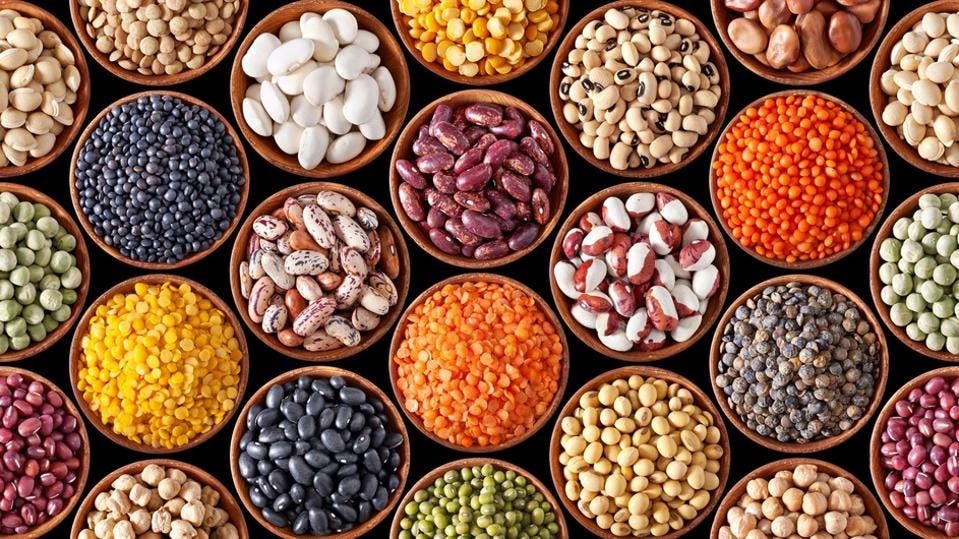
“Most lectins can be deactivated or reduced by soaking, sprouting, fermenting or cooking foods with water and heat,” says Dr. Foxman. Instead of avoiding all foods with lectins, he advises preparing them properly before consumption.
These foods contain high amounts of lectins, making it especially important to not eat them raw.
Uncooked beans
“Never eat uncooked or undercooked beans,” says Tointon. According to the U.S. Food and Drug Administration (FDA), raw beans like red kidney beans and soybeans contain high levels of phytohaemagglutinin (PHA), which can cause nausea, diarrhea and severe vomiting. While canned beans are safe, raw beans should be soaked for five hours, then rinsed and boiled for 30 minutes before consuming to avoid these adverse effects.
Peanuts
“Peanuts contain peanut agglutinin (PNA), [a lectin] that can cross the intestinal barrier and enter the bloodstream,” says Dr. Foxman. He adds that PNA may trigger allergic reactions and affect blood vessel and platelet function. Boiling, roasting or microwaving peanuts destroys 98% to 100% of their lectin content.
Cashews
“Cashews contain anacardic acid and cardol, which can cause skin irritation and allergic reactions in some people,” says Dr. Foxman. They also contain phytic acid, an anti-nutrient (a compound that interferes with the absorption of nutrients) that may affect the absorption of minerals like calcium, iron and zinc. “Cashews should be soaked for at least six hours and roasted or boiled before eating,” he adds.
Whole Grains
Whole grains, especially wheat, contain high amounts of lectins in their raw form. They also contain phytic acid, which can reduce the bioavailability of some nutrients, says Dr. Foxman. Soaking, sprouting or cooking (by boiling or pressure-cooking) whole grains before eating them minimizes their lectin content, he says.
Nightshade Vegetables
Eggplants, tomatoes, peppers and white potatoes are vegetables categorized as nightshades that are high in lectins. While some research indicates that nightshade vegetables may worsen symptoms in individuals with gastrointestinal conditions such as irritable bowel syndrome (IBS) and inflammatory bowel disease (IBD), this is likely due to their glycoalkaloid content, a naturally-occurring plant compound that can have negative effects on human health.
To avoid these effects, avoid eating nightshades raw and peel potatoes before cooking them.
